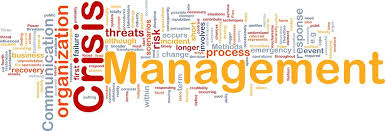Crisis Communication Services Protecting Your Brand’s Reputation
In today’s fast-paced digital landscape are brands face unprecedented challenges that can threaten their reputation and standing from the unexpected social media incidents to complex public relations issues in crisis communication has become an essential part of organizational strategy are crisis communication services to navigate these waters effectively, companies are turning to crisis communication services to manage, mitigate, and overcome potentially damaging situations. Here, we discuss how these services work, the benefits they bring, and how companies can harness them to protect and strengthen their brand’s reputation.
What Are Crisis Communication Services?
Crisis communication services are specialized solutions designed to help organizations respond promptly and effectively to situations that could harm their reputation. These services encompass everything from initial planning and strategy to real-time incident management and post-crisis analysis. A crisis can arise from various sources, such as a data breach, a product failure, legal issues, or even a negative social media trend. In any of these cases, effective crisis communication can mean the difference between a brand that maintains consumer trust and one that suffers lasting damage.
Key Components of Effective Crisis Communication
Crisis Management Planning: A comprehensive crisis communication strategy begins with a robust crisis management plan. This plan should cover all potential threats and lay out clear steps for response. This preparation helps organizations act swiftly and minimizes the likelihood of missteps in high-pressure situations.
Media Relations
The media value of building and maintaining strong relationships with media outlets is critical. In times of crisis, media can serve as either an ally or a detractor. Companies with well-established media relations are better positioned to influence public perception and control the narrative.
Stakeholder Communication
The transparent and consistent communication with all stakeholders, including employees, customers, and investors, is essential during a crisis. Keeping these groups informed helps to retain their trust and prevent the spread of misinformation.
Social Media Monitoring and Response
The social media is often the first place where news of a crisis spreads. Monitoring social channels and responding quickly can prevent the escalation of negative sentiments and contain potential reputational damage.
Reputation Management
The reputation management are beyond responding to immediate issues, crisis communication services help rebuild and manage brand reputation over the long term. This involves addressing root causes, rectifying any ongoing issues, and fostering positive engagements with the public.
Benefits of Partnering with a Crisis Communication Services Company
Working with a crisis communication services company provides organizations with access to experts skilled in handling complex issues, enabling faster and more effective responses. Here are some key benefits:
Expertise in Crisis Management
Crisis communication firms have seasoned professionals who have dealt with a wide range of scenarios, from product recalls to executive scandals. Their experience allows them to predict potential pitfalls and quickly formulate response strategies that minimize harm to your brand.
Real Time Response Capabilities
Time is of the essence in any crisis. A crisis communication team ensures your organization can respond in real time, preventing further escalation and managing public perception. With rapid response capabilities, brands can avoid lengthy delays that might worsen a situation.
Enhanced Credibility with Stakeholders
Crisis communication professionals know how to craft messages that resonate with key stakeholders. Whether addressing customers, employees, or investors, these experts ensure that all communications convey trustworthiness, empathy, and transparency, which are essential for maintaining credibility during a crisis.
Protection of Brand Reputation
The effective crisis communication doesn’t just mitigate harm—it can protect and even enhance a brand’s reputation. By addressing issues transparently and taking responsibility where necessary, companies can come through crises with stronger relationships and public goodwill.
Comprehensive Post Crisis Analysis
After the crisis is over, a good crisis communication service provides a thorough analysis of what happened, how it was managed, and what lessons were learned. This helps organizations to prepare for future crises by understanding what strategies were successful and what could be improved.
How Crisis Communication Services Work
A structured approach ensures that all bases are covered in a crisis situation. Here’s how crisis communication services are typically executed:
Risk Assessment and Prevention
The first step involves assessing the types of risks that an organization might face. This analysis is crucial in building an effective crisis response plan, as it helps in identifying potential vulnerabilities and preparing for specific scenarios.
Developing a Crisis Communication Plan
The plan details procedures for addressing each type of crisis, including messaging templates and designated spokespersons. This plan should be comprehensive, covering everything from media protocols to internal communication guidelines.
Training and Simulation Exercises
Once the plan is developed, employees, especially those in leadership and communications roles, should undergo training and simulation exercises. These exercises help familiarize teams with crisis procedures, ensuring everyone knows their role if an actual crisis occurs.
Real Time Crisis Management
When a crisis does hit, the crisis communication team steps in, enacting the prepared plan with real-time adjustments as needed. The team will monitor developments, manage media relations, update stakeholders, and provide ongoing support to the organization.
Post Crisis Analysis and Strategy Adjustment
Once the crisis has been resolved, the team conducts a post-crisis analysis to identify strengths and weaknesses in the response. This step ensures continuous improvement in the organization’s crisis management capabilities.
Why Crisis Communication Services Are Essential for Your Business
In an age where information spreads rapidly, and public opinion can shift quickly, no organization is immune to reputational risks. Whether due to an internal error or an uncontrollable external factor, a crisis can occur without warning. Here’s why crisis communication services are crucial with a dedicated crisis communication team, organizations can handle situations before they spiral out of control, protecting their reputation and customer loyalty.
Reduction of Financial Losses
The inadequate crisis management can lead to significant financial repercussions, from lost sales to stock price declines. Effective crisis communication can prevent such losses by swiftly addressing issues and restoring confidence are crisis communication isn’t just about external messaging it also addresses internal concerns
Long Term Brand Resilience
A company that handles crises well often emerges stronger and more resilient. Customers and stakeholders tend to appreciate transparency and integrity, which reinforces trust and loyalty over time are who feel informed and valued are more likely to stay loyal to the company, even through tough times.
Choosing the Right Crisis Communication Services
They are selecting the right partner for crisis communication services is essential. Look for a company that has ensure the firm has a track record of managing crises across different industries are reliable crisis communication partner offers round the clock support in look for a company with established connections in the media to help ensure fair and accurate coverage to protect and fortify their brand’s reputation, investing in crisis communication services is a strategic and necessary step. These services offer comprehensive support from planning to post-crisis analysis in enabling organizations to manage complex challenges with organization.





